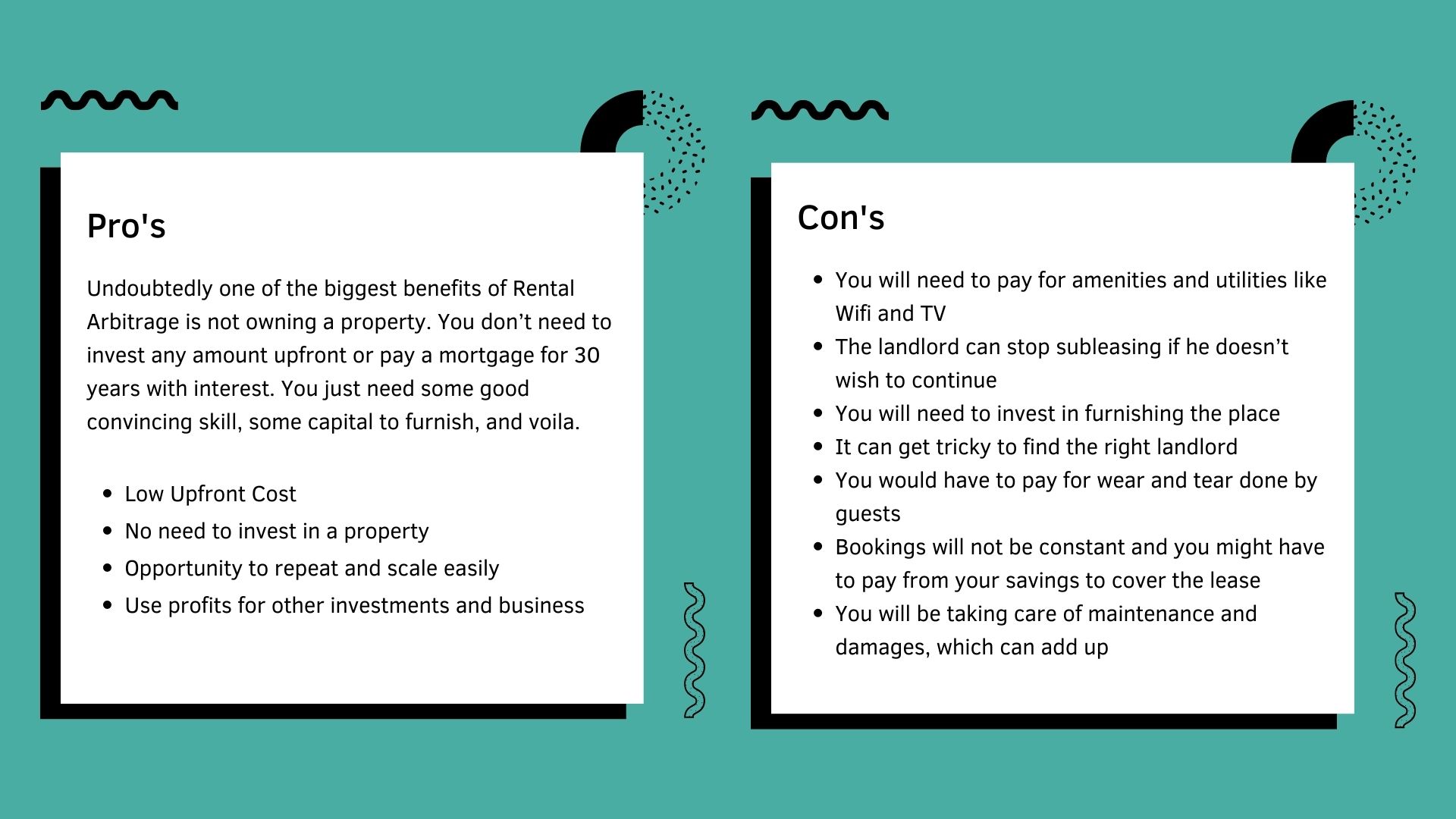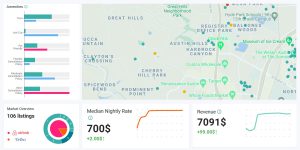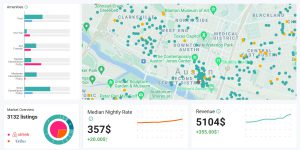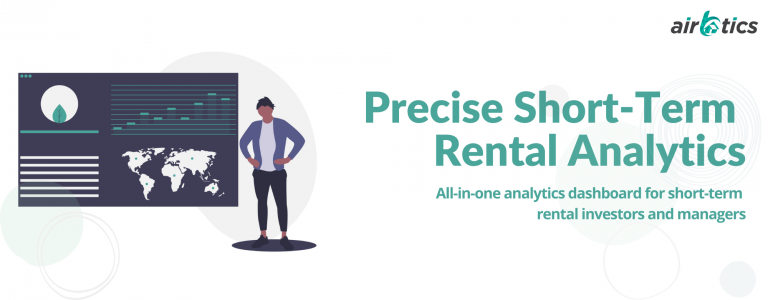What is Rental Arbitrage?
Before we discuss Rental Arbitrage Austin, we must first grasp what Rental Arbitrage is. Rental Arbitrage is a method similar to house hacking. But unlike house hacking in Rental Arbitrage, you don’t own the house. Instead, you convince a landlord to lease you a property which you then furnish and sublease on Airbnb and VRBO.
Rental Arbitrage is a really good method to do in a multifamily house, duplexes, or triplexes. You can easily use the money from your short-term rental to pay off your lease and also profit some more. If done right, this can be a full-fledged business in itself. If you own a duplex or triplex, then it is pretty straightforward. You can live in one section and rent out the other. This is known as house hacking. People use this after taking a loan on a property and use the rent to pay off the mortgage. The short-term rent helps you pay for the long-term lease that you have on the house. This helps you keep the difference at the month-end after paying for the long-term lease. Let’s take an example to help you understand Rental Arbitrage better.
Assume you are renting a duplex in Austin for $1,800/month. You are living by yourself on one of the sides and you decide to sublease the other on Airbnb. Let’s say you listed it for $100/day and got 80% occupancy. This will bring in approx $2,600/month in revenue. Not only will it help you pay off your complete rent, but give you a profit of $800. This, in a nutshell, is called Rental Arbitrage.
Evaluate your options about Airbnb Rental Arbitrage through this helpful guide!
Things to do before getting started?
How to convince the landlord
Let’s say you want to get into Rental Arbitrage Austin. Now comes the big question, how to find a good property and how to convince the landlord. Later in the blog, we’ll be explaining how to find a good property by doing proper research using Airbnb data analytics. In this section, we will be focusing more on how to convince landlords. As you’ll begin your Rental Arbitrage in Austin journey, you’ll come to know that this is the hardest part of the whole process.
You need to be prepared and well researched, good communication skills come in handy here. Also, one thing to always keep in mind: never sublease without informing the landlord, there will be a huge number of people coming in and going out when you’re sub renting, it will not be hard for the landlord to figure out that you are subletting and you might end up getting in trouble.
Now for the convincing, rule number one is always talk about the upsides. If you can rent the property on Airbnb, so can the landlord himself. You need to make a deal with the landlord that is beneficial to them. So they lease the property to you instead of renting it by themselves.
Points to tell an indecisive landlord
- Doing Rental Arbitrage is a full-time business. It doesn’t generate passive income like long-term leasing. You should try approaching older people who are looking for some sort of passive income. They are more likely to agree to a fixed long-term lease. You can also reach out to full-time working professionals or business owners. They will also be happy with a source of passive income till their property is well maintained. This brings us to our next point.
- You are more likely to take care of the house than a normal renter. As you are using the property to do business, you will take good care of it to make sure you get better reviews. Having a beat-up property isn’t good for business and you are more likely to monitor it often. Not monitoring it will affect your revenue a lot. You may end up paying a huge sum of money for damages done by someone else. So telling this to the landlord might instill some confidence in them.
- You can ensure timely monthly rent. You can tell the landlord that doing Rental Arbitrage is a full-time business with ups and downs. It doesn’t guarantee fixed income at all like long-term leasing. But if they lease it to you, you’ll make sure to pay the lease no matter what. Either from the money made after rental arbitrage or from your savings. You need to ensure timely monthly lease payments to gain the trust of a landlord.
In conclusion, you need to take care of the property like your own. Make sure to timely pay the monthly lease and keep the situation beneficial for both parties.
Ensure the Property and Gain landlords’ trust
Being on the safe side is always a good idea. From trouble guests to bothering landlords. You need to make sure you are using the right tools to ensure the property is safe and neighbours are happy. Many landlords will have this concern when renting out their property to you. They will be worried about neighbours raising noise complaints. It is a legitimate concern. To help you with all these problems, here are some suggestions that you can implement and have peace of mind.
- Simply Safe – These are home monitoring tools that you can install in the house to make sure no suspicious activity is happening there. Make sure to let the guests know about them and have their consent.
- Auto host – Automatically screens problematic tenants.
- Alexa Guard – If you already own an Alexa, you can use its Alexa guard feature to detect parties. It is an inbuilt feature that monitors changes in sound and sends you an alert in case the guests are having a party and making too much noise.
- InsuraGuest – This insurance and tech company helps you with risk analysis and gives protection beyond Airbnb and VRBO policies.
- Airbnb Investment Calculator – Give your landlord ease of mind by providing income estimates backed by Airbnb data.
You can integrate the majority of these tools with a PMS of your choice.


The initial cost of starting Rental Arbitrage Austin?
You can expect to spend anywhere between $3,000 to $5,000. This cost consists of everything, including Deposit, Furnishing, Amenities, Legal Paperwork, and LLC Incorporation.
But doesn’t this contradict the low upfront cost of Rental Arbitrage? Well, these estimates vary from city to city. There is a possibility to do Rental Arbitrage for even less than this depending upon your situation and the type of property you lease.
Still, the amount is much less than investing in a new property and getting a mortgage of thousands of dollars. Plus you won’t be on the hook for property maintenance expenses and being stuck for years with debt.
But this doesn’t mean Rental Arbitrage can be done with no or very tight budget. There will be some upfront costs that you would have to bear. Having some extra cash is also a good thing to have. It will help pay off the lease in not-so-profitable months in case bookings don’t happen right away.
Expense 1: Rental Deposits
A Rental Deposit is going to be one of the first and major expenses. You would need money to be able to sign a long-term lease with the landlord. For that, you will need a security deposit, first and last month’s rent. Sometimes you can negotiate with the landlord and use the first month’s rent as a security deposit.
Expense 2: Furnishing
Most of the time, you should always aim to lease a semi-furnished place. As someone with a fully furnished home might be doing short-term rentals themselves. Also, furnishing a place from scratch can add anywhere from $3,000 to $5,000 to your initial capital. Not choosing the right property can make Rental Arbitrage not so low cost, so choose wisely.
If the place is semi-furnished, then your best bet is to shop cheap for the rest of the stuff. You can go and find cheap supplies from places like Home Depot and IKEA. Sometimes even Walmart can have a hidden gem if you look closely.
Expense 3: Photography
Do it yourself!!! iPhones have good cameras. Will save you some money.
Expense 4: Cleaning Services
This is not a starting cost, but you will end up spending on cleaning eventually. The best way to save money is to do it yourself initially if you have the skills and experience.
If you have no experience or you don’t want to invest time in cleaning a place. Then your best bet will be to hire a professional cleaner. This can cost you anywhere from $50 to $250, depending upon the size and location.
Expense 5: Legal Consultation
Maintaining a professional relationship with a Real Estate lawyer can be very helpful in the Airbnb business. Airbnb regulations keep updating and you would need some legal guidance on the way to adjust your business accordingly.
They can also come in handy if you face any legal issues with the landlord or guests. They can help in damage claims and insurance as well in case of any mishappening.
Legality and Regulations in Austin
Austin’s city limits have some pretty strict laws about short-term rentals. A complicated permitting process governs short-term rentals. A permit to run a short-term rental in Austin is impossible if it is not your primary house.
The law governing short-term rentals (STRs) is strict. It is important to understand the Texas restrictions if you plan to invest in property, in central Texas.
In Austin, there are a variety of short-term rental options:
1. Owner-Occupied – (single-family, multifamily, or duplex)
Are either owner-occupied or linked to an owner-occupied primary house.
It must have at least a sleeping area (with a shared bathroom), and the owner is usually on-site during the rental process. To qualify, the property must be owner-occupied or affiliated with an owner-occupied primary residential unit. A deed registered with the Travis or Williamson County clerk’s office must match your application for ownership.
2. Non-Owner Occupied – (single-family or duplex)
Aren’t owner-occupied or connected to an owner-occupied main house? Are these single-family or duplex homes? Include the rental of a whole house. The city regulates the number of STRs that can operate within each census tract.
Your application must match the information on the deed recorded with the Travis County Clerk’s office or the Williamson County Clerk’s office.
By 2022, second-class short-term rentals will no longer be permitted in residential areas but may be permitted in business areas.
3. Non-Owner Occupied – (Multifamily)
These properties are not owned by the owners. Are part of a property with multiple uses (apartments, condos, etc.). Include the rental of a whole house or apartment. Document the total number of buildings on the land, as well as the number of units per building.
Owners must follow the appropriate geographic caps. The ownership information on your application must correspond to the deed recorded with the Travis County Clerk’s office or the Williamson County Clerk’s office.
Let’s take a look at how you may lawfully rent out your property for a short period
Licensing
Owners of Short-Term Rentals (STRs) must get an operating license each year. This rule applies to any property (including rooms and guest homes) that is to rent for less than 30 days in a row.
Adhere to the Document Rule:
- Fill out the application for a short-term rental license ($567.00). (Non-refundable) Fee total (including a $50.00 notification fee)
- Property Insurance Proof
- Get an Occupancy Certificate
- Valid driver’s license
- All third-party agents will need to get written permission from the owners to check property compliance.
Compliance
Ensure that your license is updated on a yearly basis. Property owners must submit the following documentation to the Austin Code Department each year.
- Hotel Occupancy Tax Payment Proof
- Evidence of Property Insurance
- Fees for renewing your operating license = $310.00 (Non-refundable). Renew it before the license expires.
If the limits are broken, the property owners might risk a $2,000 fine and the loss of their operating license.
Reference| Hostaway
Best areas for Rental Arbitrage Austin
Some obvious places that come to mind when thinking of Austin like North Austin, South Congress and Bouldin Creek. But two of the best choices for rental arbitrage top our list. The first one is:
1. Austin Hills

According to our Airbtics Dashboard, Austin Hills is the top market to start your Rental Arbitrage business. There are more than 106 Airbnb listings with 11 private rooms properties and 32 one-bedroom properties. Monthly revenue for most properties is more than $7,091/month with occupancy being more than 54%.
2. Downtown Austin

According to our Airbtics Dashboard, Downtown Austin is the second-best market to start your Rental Arbitrage business. There are more than 2,290 Airbnb listings with 745 private rooms properties and 301 one-bedroom properties. Monthly revenue for most properties is more than $5,104/month with occupancy being more than 49%.





